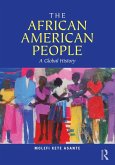This book attempts to track the crinkum-crankum path that has been the hallmark of development in most Sub-Saharan countries since the Independence decade (1957-1967). The biggest misconception about Africa has always been treating the second largest land mass on the globe as one entity, with a monolithic culture. It couldn't be further from the truth.
The author tries to steer the reader through an amalgam of issues that contributed to the diverging and meandering paths. The pioneers of African independence were every bit as brave and patriotic as those in other regions of the world. However, they faced enormous odds against them in their efforts to wrest power from systems of oppressors determined to maintain the status quo. Nonetheless, despite these obstacles, they prevailed, and set the course generations of their successors should have followed. Some have stumbled and fallen off the original trajectory, leading their countries into untenable positions, mired in economic chaos and sporadic violence.
Still, having secured those republics (if they can keep them), the bigger fight is to ensure that their people are well-fed, clothed, schooled, and kept in good health. This entails smart management of resources and inclusive governance that guarantees the lives of citizens are valued, resources are not squandered on oppressive instruments, or pilfered outside for the benefit of those who monopolize power.
With 60% of the world's arable uncultivated land, the African continent should not be a net food importer. Leaders should strive to lift their people from nauseating pervasive poverty, allowing them to proudly share a seat on the high table of development.
The author tries to steer the reader through an amalgam of issues that contributed to the diverging and meandering paths. The pioneers of African independence were every bit as brave and patriotic as those in other regions of the world. However, they faced enormous odds against them in their efforts to wrest power from systems of oppressors determined to maintain the status quo. Nonetheless, despite these obstacles, they prevailed, and set the course generations of their successors should have followed. Some have stumbled and fallen off the original trajectory, leading their countries into untenable positions, mired in economic chaos and sporadic violence.
Still, having secured those republics (if they can keep them), the bigger fight is to ensure that their people are well-fed, clothed, schooled, and kept in good health. This entails smart management of resources and inclusive governance that guarantees the lives of citizens are valued, resources are not squandered on oppressive instruments, or pilfered outside for the benefit of those who monopolize power.
With 60% of the world's arable uncultivated land, the African continent should not be a net food importer. Leaders should strive to lift their people from nauseating pervasive poverty, allowing them to proudly share a seat on the high table of development.
Dieser Download kann aus rechtlichen Gründen nur mit Rechnungsadresse in A, D ausgeliefert werden.









